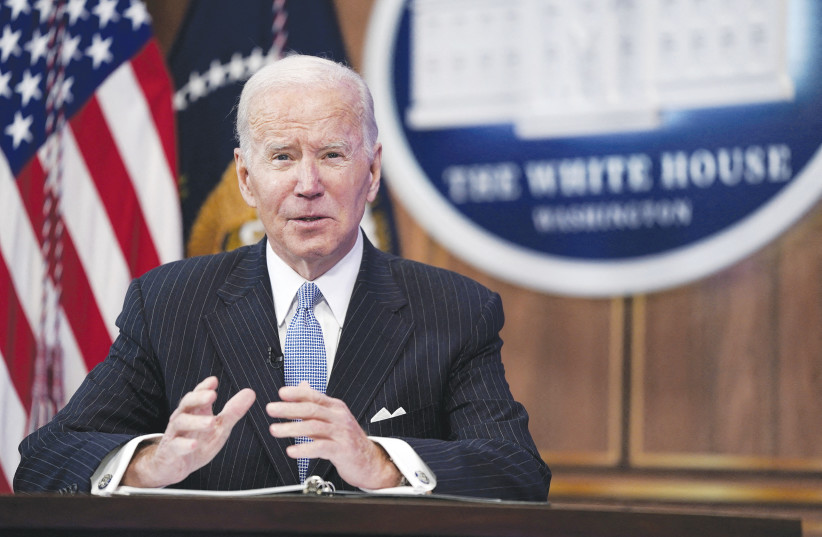The Biden administration, along with its NATO allies - France, Britain, Germany, and Italy, hopes to announce within a few weeks the new understandings that will put an end to the fighting between Israel and Hezbollah and restore calm to the northern border. Senior Israeli officials and a knowledgeable source close to this issue revealed this.
The main objective of the Biden administration since October 7 has been to prevent a full-scale war between Israel and Hezbollah and to prevent the Gaza crisis from spreading to other countries in the Middle East. Biden entrusted the Israeli-Lebanese portfolio to his close advisor, Amos Hochstein, who conducted negotiations between Israel and Lebanon for the maritime border agreement signed in October 2022.
Sources familiar with the matter said that the United States hopes that the prisoner exchange agreement between Israel and Hamas will lead to a decrease in the fighting in Gaza and contribute to achieving calm on the northern border. However, the US is prepared to announce the new understanding between Israel and Lebanon even if that does not happen.
The clashes along the northern border between Israel and Hezbollah have been escalating for the past four months. Israel has evacuated tens of thousands of residents from settlements near the border due to fears of a raid by Hezbollah's Radwan forces. These residents are currently unable to return to their homes.
Israel has repeatedly stated that the situation along the border must change, either through diplomatic or military means, to allow the residents to return safely. One of Israel's conditions is for Hezbollah's Radwan forces to be pushed about 10 kilometers away from the border with Israel, beyond the range where anti-tank missiles can reach Israeli communities.

During his visit to Israel on Sunday, former German Minister Heiko Maas discussed his proposal for new arrangements along the border with Prime Minister Benjamin Netanyahu, Defense Minister Yoav Galant, and Minister Benny Gantz.
The plan is based on an old proposal used by the US in the past
The US plan is based on the model of "Operation Grapes of Wrath" that the United States and several Western countries declared to end an Israeli operation in Lebanon in 1996. The parties will not formally sign the new arrangements, but rather, the United States and four European countries will issue a statement specifying the commitments made by each side. Additionally, the United States, France, Britain, Germany, and Italy will announce an economic assistance package to Lebanon to incentivize Hezbollah to agree to the arrangements and present it as an achievement to the Lebanese public.
The new arrangements will focus on partially implementing UN Security Council Resolution 1701, which ended the Second Lebanon War. It is important to note that both sides will only be required to comply with some provisions of Resolution 1701 fully. Thus, the new arrangements can be implemented even without a complete ceasefire in Gaza, as demanded by Hezbollah.
Under the new arrangements, both sides will commit to ceasing the exchange of fire occurring in the border area starting October 7. Hezbollah will not be required to withdraw its forces from north of the Litani River, as demanded by Resolution 1701, but only to a distance of 8-10 kilometers from the border with Israel. It is worth mentioning that the exchanges of fire between the sides since October 7 have already led Hezbollah to withdraw its Radwan forces to a distance of 7-10 kilometers along almost the entire length of the border with Israel.
The new arrangements will be based on the principle of "freezing the situation," where Hezbollah will not be required to withdraw its forces from their current positions but rather return them to the positions they held near the border before October 7. As part of the arrangements, the Lebanese Army will deploy 10-12 thousand soldiers along the border with Israel.
Israel must also take specific steps as part of the arrangements. The United States has requested Israel to cease fighter jet flights in Lebanese airspace, a request which Israel has not rejected. Israel will also commit to withdrawing some of its forces that have been concentrated at the border over the past four months, mainly reservists.
In January, the Biden administration was deeply concerned about the potential escalation to a full-scale war between Israel and Hezbollah. Biden discussed the issue with Netanyahu, and Defense Secretary Lloyd Austin and Secretary of State Antony Blinken also talked with their Israeli counterparts. An informed source indicated that the American message to Israel was that any Israeli military action would be met with an all-out war by Hezbollah, with the organization mobilizing all its pro-Iranian militias in Iraq and Syria to support Hezbollah in its fight against Israel.
The Americans made it clear to Israel that they did not underestimate the capabilities of the IDF to inflict severe damage on Lebanon but believed that engaging in such a campaign would be a strategic mistake. Two senior Israeli officials stated that Israel did not
